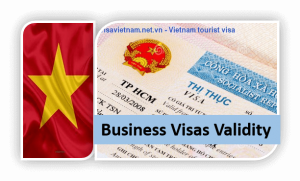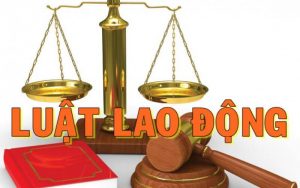Vietnam even if it is a densely populated small country, but it has proved how effective its government is in not only controlling the COVID19 but also no death has been reported due to it. Which has proven that the government takes pandemic very seriously and took some very swift measures to bring Vietnam back to normal working conditions that too remarkably within 3 months. Due to this now many businesses want to have a Foreign direct investment (FDI) in Vietnam. So, in this article we would try to provide an overall view of what the FDI guidelines are in Vietnam as your research for set-up and registering an FDI company.
Before we start with what is the present FDI guidelines, we would like to tell you on how it all started, as in 1994 the USA sanction on Vietnam was lifted, but even before that i.e. since 1987, the Vietnamese government has been committed to opening up the economy and to introduce reforms based on a market economy. And right from 1987 the government is continuously improving its judiciary system, leading a strategy of political and tax incentives for foreign investors, and is working hard to uphold its commitments to the international community. Vietnam allows FDI in 3 categories which are as an business cooperation, a joint venture, or a 100% foreign-owned company. Incentives continue to be created by the Vietnamese government to promote and secure foreign direct investment in Vietnam.
Now coming to the present FDI situation in Vietnam, it has dropped by 8.2 percent from a year earlier to USD 6.7 billion in January-May 2020. In addition, FDI pledges, which indicate the size of future FDI disbursements, tumbled 17 percent in the year to USD 13.89 billion. The manufacturing and processing sector is set to receive the largest amount of investment (49.5 percent of total pledges) followed by gas, water, and electricity distribution (28.2 percent)

Hence, Vietnam has lot of opportunities for FDI, so now let make a list on what documents are required to make a foreign investment in Vietnam
The declaration of all foreign direct investment is mandatory, whether the investor is a physical or legal entity.
The law on foreign investment in Vietnam oversees foreign investment, which requires obtaining various documents which are as follows
Investment Certificate: To obtain it, investors should build a case for consideration by the competent authorities.
Each business creation represents a specific investment that will be subject to requirements and specific regulations established by the Vietnamese government. Significant transactions will be subject to stricter conditions than smaller projects and will be subject to an investment evaluation procedure.

Permission from the Vietnamese government: Investors wishing to establish a branch or a representative office in Vietnam must also submit their application to the Vietnamese administration, but the conditions are alleviated and the investment license is not required: only the agreement of the Government Vietnamese is required. When examining the case, attention will be paid to the interest of the parent company’s activity for the country.
Visa: To enter the territory, a stranger in principle needs a visa issued by an embassy or consulate of Vietnam. Nationals of some countries, however, are exempted for short stays. Different types of visas exist depending on the profession and the subject of the applicant’s request.
Residency permit: a residence permit will be issued in correspondence with visa. It is obtained from a police station. An applicant for a residence permit must present evidence that he/she works/invests in Vietnam.
Working Licence: In Vietnam, foreign workers must hold a work permit issued by the Vietnamese Labour Authorities, with the exception of certain cases such as head of a representative office or subsidiary established in Vietnam, foreign lawyers who have a certificate of practice of the legal profession in Vietnam, foreigners being members/owner of LLC, members of the Board of management of SC, foreigners who are internally transferred within a company and within the scope of the List of Commitments of Services of Vietnam with WTO. The employer is in charge of submitting the file to the Department of Labour, War Invalid and Social Affairs in both cases: request for issuance of work permit and certification of work permit exception.
Now once you are aware of what document would be required, you should be also aware of what is the minimum Registered Capital. As of now there are no requirements on foreign investment amount and registered capital in Vietnam. But registered capital cannot be less than 30% of the total investment amount. The registered capital of encouraged / large investment projects can be reduced to 20%. It is suggested that the minimum registered capital should be no less than USD100,000.
Hope this was helpful for giving you an overall view on your research related to FDI in Vietnam. Lots of countries have now changed their FDI policies post COVID19 to safeguard their local industries, but there are no major changes in the FDI policies in Vietnam as the policies were already very robust for protection and development of the local companies and Vietnamese economy.
So now you might want to get started with the pre-FDI stage that is doing the on the ground research, so let us be your partner to assist you to recruit and manage the ideal candidate to provide you the best market insights for making a decision about investment plans in Vietnam.
Please get in touch with us by clicking on this link: http://hroutsourcing.gpo.vn/ so then we can take it forward from here and begin our journey to build a long-term business relationship of been your HR partner.
Thanks for your valuable time!
Stay healthy and stay safe
Top
















